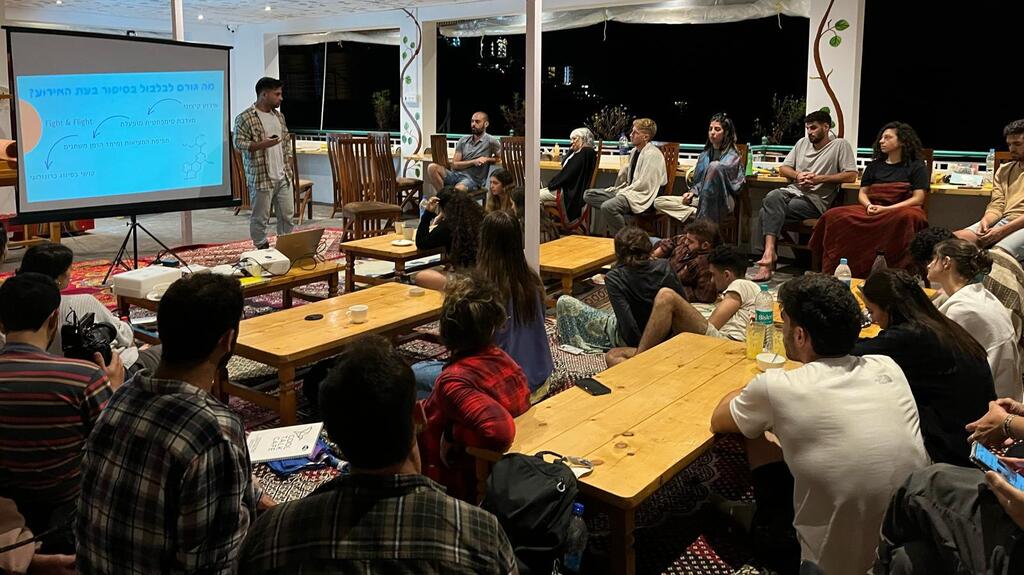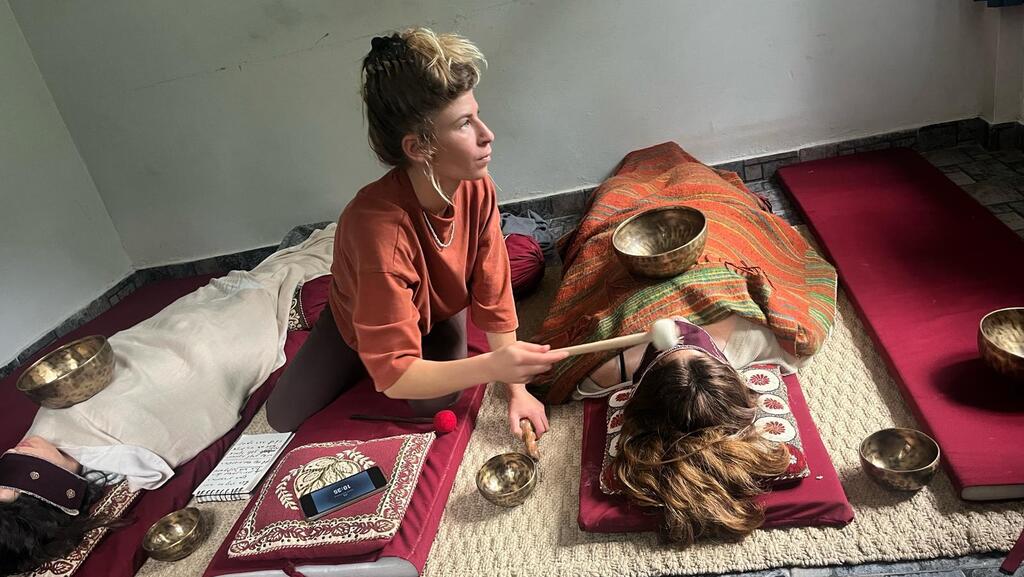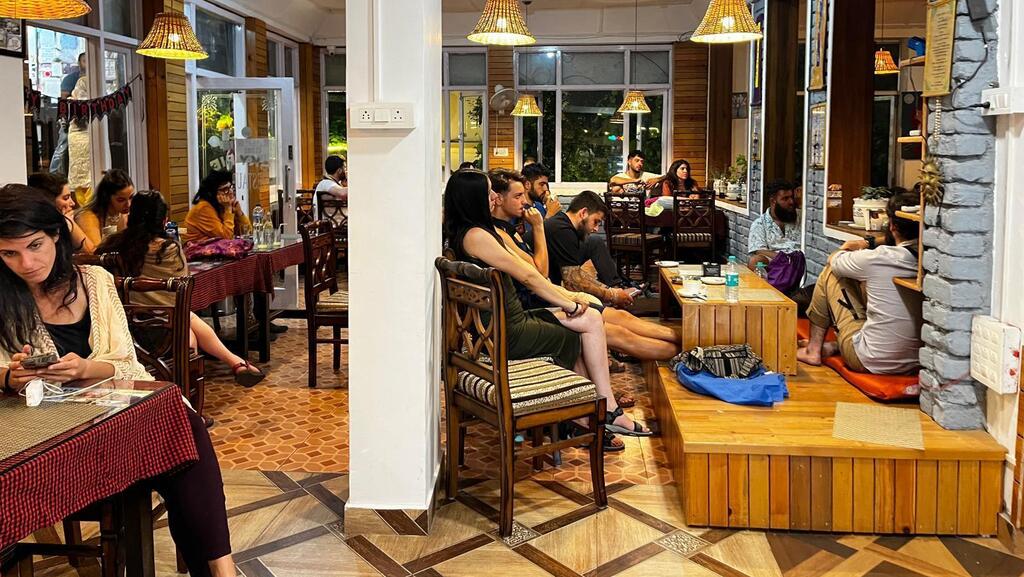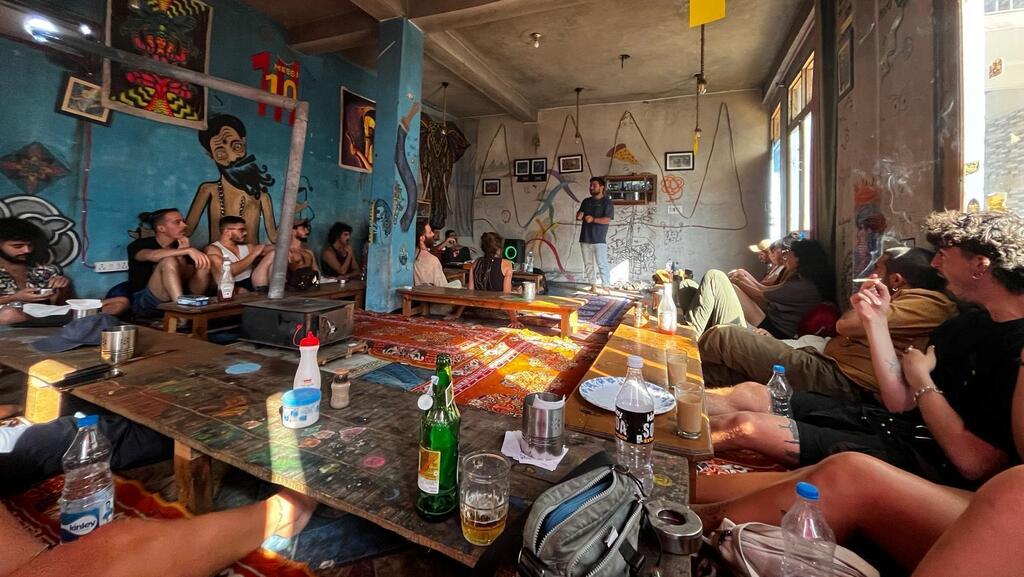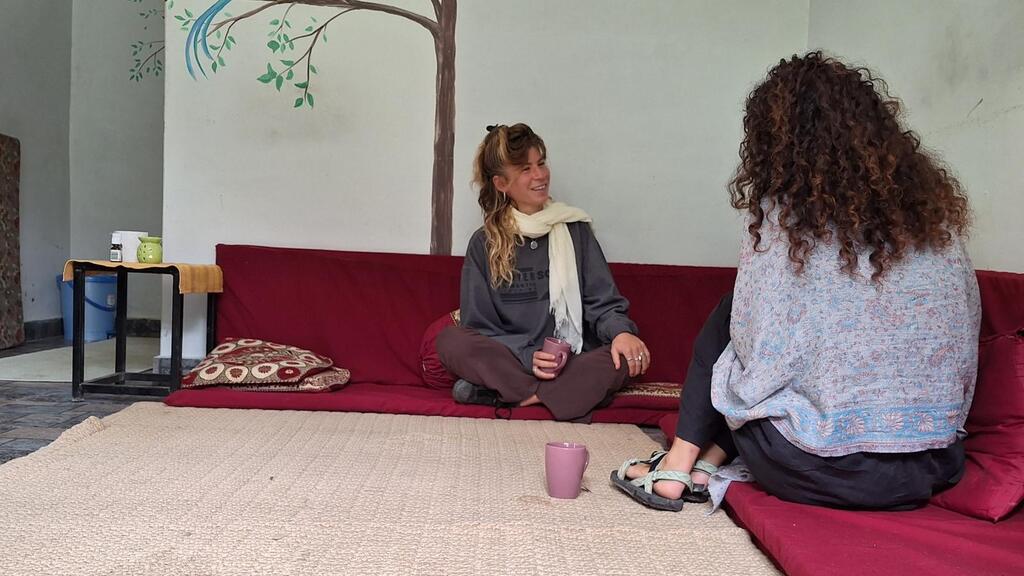It happened one day in Dharamshala, amid the narrow, colorful streets of the mountainous city in northern India, Eitan Langer recounted in an interview with Ynet.
Langer, a father of two who served as a detective in the Ofakim police and a reserve combat soldier in Gaza, witnessed the traumatic collapse of a building that killed 21 soldiers. A few months ago, after completing another round of reserve duty, he found himself wandering the streets of India feeling lost.
His post-trauma and the heightened alertness that had plagued him since the start of the war wouldn’t let go. “I thought India would help me, lift me up,” he admitted, “but in the end, I got lost.”
Then, among the flyers posted on café walls in Dharamshala, he saw an ad for a lecture by a former IDF officer who had fought in Gaza, Hezi Shochat, offering to help soldiers make sense of their experiences. “Seeing Israeli social workers in India was amazing and moving,” Langer said with a smile.
Shochat, a reservist officer in an elite IDF unit, a trauma-specialized social worker and a rescue volunteer with Magnus, a company that locates and retrieves travelers abroad, recognized the distress of Israelis traveling to the East between rounds of reserve duty.
Together with Tamar Friedman, a trauma-focused social worker, military psychologist and Magnus volunteer, he established Hamakom ("The Place") – a support and growth space in northern India for travelers grappling with emotional challenges related to the war.
Why are so many young Israelis seeking refuge in India?
Shochat: “Since October 7, the extent of physical and emotional injuries has left Israel in a state of trauma. About 1.5 million residents suffer from trauma at varying levels and 10,000 soldiers have been diagnosed with stress reactions during the war. Around 80,000 young Israelis have flown to the East to escape, disconnect and forget amid overwhelming mental anguish.”
Langer, for example, was diagnosed with post-trauma manifesting as hypervigilance and sleep problems. “At first, I didn’t understand what was happening to me. It was something new, unfamiliar,” he shared. “Hezi helped me realize that I’d gone through incredibly difficult experiences — ones that only someone who was there could understand.”
When trauma travels with you
Among the colorful alleys of Goa and the tranquil streets of Dharamshala, Hamakom, operating seasonally to align with travelers' movements, serves as a beacon of hope. “We’ve reached a critical juncture,” Shochat said. “We realized Israel had a kind of back yard where thousands of young people are seeking refuge.”
Why do breakdowns often happen in the very places they escape to?
“There are various reasons, but the main ones include the foreign environment, disconnection from family and uncontrolled use of mind-altering substances. These factors pose a real danger to individuals who are already suffering from post-trauma or instability caused by the intense experiences they’ve faced.
“We’ve seen a 500% increase in rescues of young people from the East since October 7,” he added. “Without professional care to process these experiences, escaping to the East can exacerbate post-traumatic symptoms, trigger emotional breakdowns and even lead to psychosis.”
Daily resilience workshops, music and movement therapy and one-on-one conversations are held at Hamakom. “We don’t just provide treatment,” Shochat explained. “We create a supportive community. Sometimes it starts with a chat over coffee on the balcony, and from there a significant healing process begins.
“Our uniqueness lies in the combination — we can talk to soldiers about PTSD in professional terms, but we can also say, ‘I was there with you in the field; I understand.’ This creates an immediate trust that’s critical for recovery.”
Why India?
“It’s a natural question — why not use the resources available in Israel? The fact is, we’re at a critical crossroads. We don’t aim to administer treatment here; we aim to provide immediate support to those who need help and are in a place where they’re unsure who to turn to.
“Our rationale is to be at this critical point, preventing them from seeking harmful alternatives and guiding them toward safe paths to recovery.”
A legacy of support
Hamakom is dedicated to the memory of Capt. (res.) Ron Efrimi, Shochat’s unit comrade who was killed in action in Gaza. “Ron maintained a safe and supportive space for his soldiers and was an anchor for those dealing with stress and anxiety throughout the fighting,” Shochat recalled.
“We’re the second generation of Israelis in India,” Langer reflected. “The reservists, the older crowd — we have things to lose back home: kids and family. But the younger generation I’ve seen here, they arrive and just break down.”
Did you ever feel like you were on the verge of breaking down?
Langer: “The truth is I broke down too at the end of Hezi’s lecture. I got into bed and didn’t get out for two whole days — I just slept. It was like my body did some kind of restart. I realize now that I got a life lesson here.”
Following the encounter, Langer decided to return to Israel and begin psychological treatment. “I understood that I couldn’t keep raising my kids and functioning in this state,” he admitted. “Thanks to Hezi and the space he and the team created, not only was I able to regain myself — I even returned to reserve duty.
“Hezi managed to normalize the abnormal state I was in,” he said. “He told me it’s okay to feel how I feel and it’s okay to accept myself even when I’m not okay.”
A bridge to long-term rehabilitation
The numbers speak for themselves: Since the war began, nearly half of the calls to support hotlines have been from young people ages 20–30 in the IDF, reserves, bereaved families and survivors of the Nova Music Festival massacre. Over 3,000 travelers have received support and aid at Hamakom since its establishment.
Get the Ynetnews app on your smartphone: Google Play: https://bit.ly/4eJ37pE | Apple App Store: https://bit.ly/3ZL7iNv
“We work closely with Sheba Medical Center’s Trauma Unit, NATAL and Magnus Search and Rescue,” Shochat noted. “This allows us to ensure continuity of care even after they return to Israel. We’re not just offering immediate support — we’re serving as a bridge to long-term rehabilitation.”
But to continue this vital work and provide a light for those searching for their way back to themselves, Hamakom needs support. “We’ve launched a crowdfunding campaign,” Shochat said. “Every donation enables us to reach out to another young man or woman, thousands of miles from home, in urgent need of help.”



